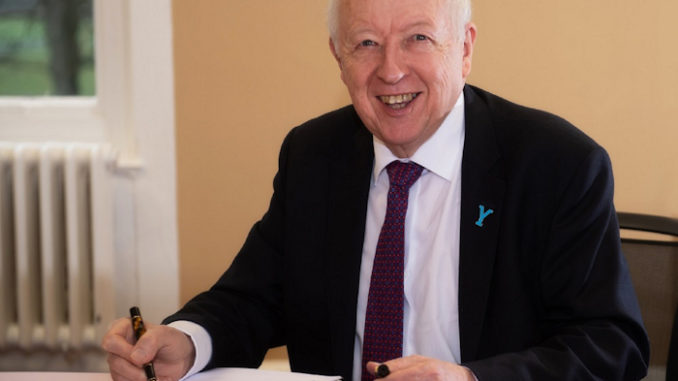
The leader of a unitary council which is looking to transfer powers to parish and town councils as part of its flagship ‘double devolution’ scheme is calling for more people to stand to represent their communities.
North Yorkshire Council leader Councillor Carl Les said while local handing of services such as parks and public toilets could lead to improvements for residents, it would be “healthier” if more parish and town councillors making significant financial decisions on behalf of taxpayers had a democratic mandate.
Coun Les made the comments following a meeting of the authority’s executive which saw members of his Conservative and Independents group enthusiastically welcome moves to transfer a range of powers, ranging from managing markets to public benches, to ten town councils.
Members said the sooner more town and parish councils had extra powers to make decisions on their areas the better.
The meeting heard how the new unitary council had committed to placing local communities at its heart as part of its justification for having a single authority covering England’s largest county, with double devolution being “a key platform to achieving this aim”.
Underlining the significance of double devolution, Ripon councillor Andrew Williams said pressing ahead with a proposal to hand the city responsibility for Ripon Town Hall, Market Place and car park, public toilets and Wakeman’s House “potentially a historic day” following Ripon’s “fractured relationship” with Harrogate Borough Council.
He told the meeting double devolution would improve neglected parts of the city.
Coun Williams said: “We firmly believe that Ripon people know Ripon better than anybody else and know best how to make it a success.
“If we can get double devolution working across North Yorkshire, and areas that are not currently maximising their potential, doing so, it can only be a good thing for North Yorkshire as a whole. The people of Ripon are firmly behind the principle of double devolution.”
The double devolution moves have not been universally welcomed by the authority’s 90 councillors, with some opposition members highlighting concerns that many parish councils would be unable or unwilling to take on extra responsibilities, leaving a democratic gap between different areas.
Another concern raised over double devolution relates to the low number of town and parish councillors who are selected by residents in elections.
After the meeting, when asked whether he was concerned about handing powers to town and parish councils with little to no democratic mandate, Coun Les said as the decisions of parish and town councils which had double devolution would be “more impactful”, people should stand for office.
He said: “I don’t think there is ever a reason why party politics should come into town and parish councils. People should be there just to represent their fellow residents rather than whatever political dogma might say.
“We can’t ask for devolution from Whitehall if we’re not prepared to devolve it down from County Hall as well.
“It would be healthier if people were elected and therefore had some sort of mandate to act. The more powers we give to people you have to hope the more people would want to be part of that process and if there are more people wanting to be a town or parish councillor than there are seats on the council then you have to have an election.
“We have made sure the costs of holding those elections, apart from by-elections, will not be borne by town and parish councils.”


Be the first to comment